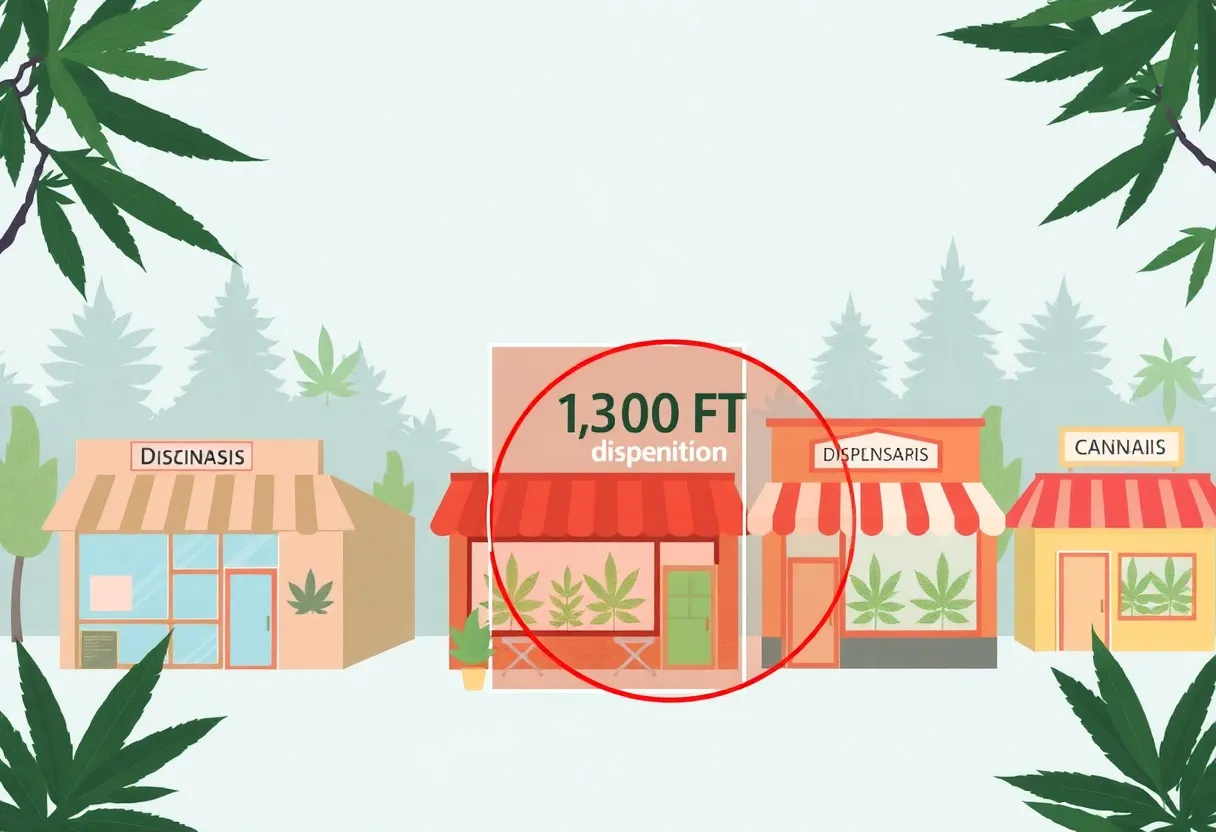News Summary
A group of cannabis companies in New York is suing the Office of Cannabis Management and Cannabis Control Board over proximity waivers issued to dispensaries. The lawsuit, led by Conditional Adult-Use Retail Dispensary license holders, claims that these waivers violate the 1,000-foot buffer rule designed to prevent excessive competition. This legal action raises concerns about the integrity of the state’s CAURD licensing program and the equitable treatment of cannabis operations. The situation highlights ongoing challenges within New York’s evolving cannabis market.
New York – A dozen cannabis companies in New York are filing a lawsuit against the state’s Office of Cannabis Management (OCM) and Cannabis Control Board (CCB) challenging the validity of proximity waivers issued to certain dispensaries. The legal action was initiated by four Conditional Adult-Use Retail Dispensary (CAURD) license holders on January 9, 2025, who argue that the waivers violate the state’s 1,000-foot buffer rule between cannabis dispensaries.
The 1,000-foot buffer rule was established to protect smaller operators from excessive competition and clustering of dispensaries, a key concern expressed by industry stakeholders. The CAURD licensees, which include companies like L.O.R.D.S., Actualize Dispensary, Astro Management, and R&R Remedies, contend that the waivers were granted without proper notice, analysis, public discussion, or due process, undermining the regulatory framework designed to support social equity in the cannabis market.
The lawsuit specifically points out that the CCB issued six unannounced waivers that violate legally mandated proximity regulations. In light of these waivers, companies have expressed fears for their business viability. The awareness of these waivers only weeks prior to their planned openings has created uncertainty among the affected licensees.
The impact of these waivers extends beyond individual companies; they also jeopardize the integrity of New York’s CAURD licensing program, which was created to promote equity in the cannabis market and to aide justice-involved individuals who have historically faced discrimination and over-policing. As evidence of their community support, thirty-eight other CAURD license holders have signed affirmations in favor of the lawsuit. Additionally, major industry associations such as the New York Cannabis Retail Association and the National Hispanic Cannabis Council have expressed their backing.
Critics of the CCB’s actions, including industry leaders, argue that the regulatory body has been acting capriciously and undermining the very communities that the equity-focused CAURD program aimed to uplift. There is concern that the state’s actions are creating an uneven playing field in the burgeoning market, which has already been complicated by the presence of numerous illegal cannabis stores across New York. The proliferation of unregulated dispensaries increases the urgency for maintaining the distance required between legal establishments to ensure a fair and competitive market environment.
An important aspect of the lawsuit is the assertion that the proximity waivers were never intended to be a common practice but were initially reserved for rare exceptions. The CAURD program, established in 2022, was designed to provide a legitimate avenue for individuals historically marginalized by cannabis prohibition and to promote a more inclusive and equitable industry moving forward. In light of this intent, the waivers are seen as a direct contradiction to the principles that guided the development of the CAURD system.
Brittany Tantalo, president of the New York CAURD Retail Association, has emphasized the need for clearer regulations and guidelines surrounding the waiver process to prevent similar issues in the future. As businesses scramble to adapt to the changing regulatory landscape, the lawsuit raises legal questions regarding the compliance of the CCB and OCM with their stated regulations. The ongoing situation illustrates the challenges facing CAURD applicants, with many expressing their frustration over the unclear path to successfully establishing legal cannabis operations in New York.
The legal proceedings arising from this lawsuit may significantly affect how cannabis regulations are interpreted and enforced in New York, particularly as the state continues to navigate the complexities and responsibilities of an emerging legal cannabis market.
Deeper Dive: News & Info About This Topic
- LoHud: NY Cannabis Dispensaries Sue Over State Approval
- Wikipedia: Cannabis in New York
- NY Times: New York Cannabis Licensing Unconstitutional
- Google Search: New York cannabis dispensary lawsuit
- Crain’s New York: NY Cannabis Program Ruling
- Google Scholar: New York cannabis dispensaries
- Business of Cannabis: NY Cannabis Businesses Lawsuit
- Encyclopedia Britannica: Cannabis
- Cannabis Business Times: NY Dispensary Licensees Sue State Regulators
- Google News: New York cannabis industry news

Author: STAFF HERE NEW YORK WRITER
The NEW YORK STAFF WRITER represents the experienced team at HERENewYork.com, your go-to source for actionable local news and information in New York, the five boroughs, and beyond. Specializing in "news you can use," we cover essential topics like product reviews for personal and business needs, local business directories, politics, real estate trends, neighborhood insights, and state news affecting the area—with deep expertise drawn from years of dedicated reporting and strong community input, including local press releases and business updates. We deliver top reporting on high-value events such as New York Fashion Week, Macy's Thanksgiving Day Parade, and Tribeca Film Festival. Our coverage extends to key organizations like the Greater New York Chamber of Commerce and United Way of New York, plus leading businesses in finance and media that power the local economy such as JPMorgan Chase, Goldman Sachs, and Bloomberg. As part of the broader HERE network, including HEREBuffalo.com, we provide comprehensive, credible insights into New York's dynamic landscape.





